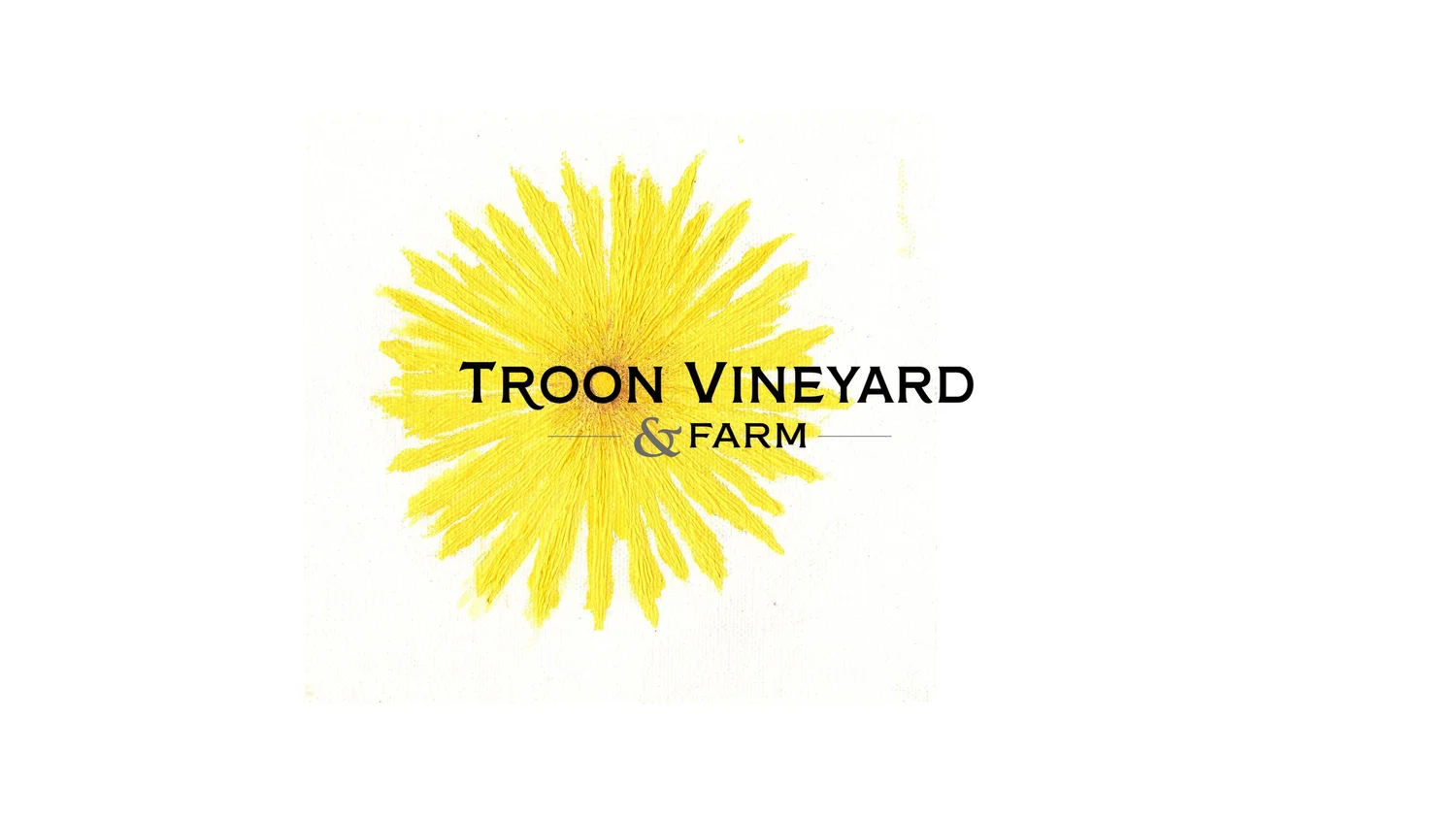The Applegate Valley Offers Oregon Winemakers a Quiet Place to Experiment
By Eric Asimov
…But Aside from the excellent Applegate wines I’ve had from Willamette producers, the wines of one producer, Troon Vineyard, made such an impression on me over the last few years that I drove seven hours from the Mendocino Coast in July to pay a visit to Applegate Valley.
Troon, outside of Grants Pass, is not exactly new. It was founded in 1972 by Dick Troon, a farmer who planted cabernet sauvignon and zinfandel. But the modern history of Troon began when the farm was purchased in 2016 by Denise and Bryan White, Texans who were looking for a place in Oregon. They in turn hired Craig Camp, a wine industry veteran, as general manager.
Mr. Camp first moved to convert the vineyards — the cabernet and zin had long since been pulled out — to biodynamic and regenerative farming, while making the estate more biodiverse. They planted apple trees and a vegetable garden, and added chickens and sheep for grazing in the vineyard and rewilded honeybees, a program of creating hives as bees would in the wild rather than for cultivating honey.
Both biodynamics and regenerative farming put a premium on building and maintaining soil health while creating a thriving and diverse environment. Theoretically, at least, the farm becomes a self-regulating ecosystem in which grapevines have all they need without additions like fertilizers or herbicides to compensate for what has been lost or taken away."
In practice, it’s not always that neat. But Mr. Camp can point to many triumphs, like a diseased block of vermentino that he says has done well after the conversion to biodynamics.
Mr. Camp now considers himself an advocate of practical biodynamic farming. He was once a skeptic, he said, but became convinced only through tasting wines that impressed him and learning afterward that they had been made of biodynamically farmed grapes. The improvements he’s seen in the microbial life of the soil at Troon have further persuaded him.
Troon recently received Regenerative Organic Certification, which, in addition to farming organically, requires it to demonstrate improvements in soil health and water management and to meet standards in managing employees and in caring for animals.
Mr. Camp and his team are overhauling the Troon infrastructure and replanting the vineyards, primarily with varieties from the Rhône Valley, like syrah, grenache, mourvèdre, roussanne and marsanne; the southwest of France, like tannat, negrette and rolle (also known as vermentino); along with some from Italy and Spain.
In all, Troon has 45 planted acres with 20 varieties, some of which have been added simply to determine which grapes will make the best wines.
“We need to experiment,” said Nate Wall, Troon’s winemaker. “We’re a young A.V.A.”
Mr. Camp says the obscurity of some of the grapes plays in Troon’s favor. "I find trying to sell wines like negrette easier than pinot noir,” he said. “We’re connecting with people, who say: ‘Negrette? Oh, I want to try that.’ ”
While I admire the way Troon farms and its empirical attitude, the proof is in the wines, which are invariably fresh, lively and expressive. A 2020 vermentino is pure and energetic, full of citrus and herbal flavors yet refreshing and intriguing.
A 2019 Côtes du Kubli (named for the Kubli Bench, the geographical feature on which Troon sits), mostly syrah with 16 percent grenache, is tangy, dry and lip-smacking. A 2019 tannat is lovely, with floral and plum flavors.
Troon is fermenting some wines in amphora, and is making orange wines, petillant-naturels and piquettes, all trendy expressions that, in Troon’s hands, demonstrate why people were attracted to the styles in the first place.
The growing consumer interest in piquette particularly has been surprising. Historically, piquette was made by adding water to pomace — the skins, seeds and stems remaining after grapes were pressed — and then re-fermenting the mixture, resulting in a thin, fizzy, low-alcohol beverage that was given to vineyard workers. In its modern incarnation, it has developed a following. “We made piquette for the first time in 2019,” Mr. Camp said. “I thought it was for geeks, but it flew out the door.”
Troon has also been forward thinking, planting late-ripening grapes, like mourvèdre, that may not be ideal now but will be useful as the climate changes. “We plant on the belief that the climate will continue to warm up,” Mr. Camp said. “It’s a year-by-year process, if it doesn’t ripen enough it will make a great rosé or even a pet-nat.”
Link to the original article in The New York Times

